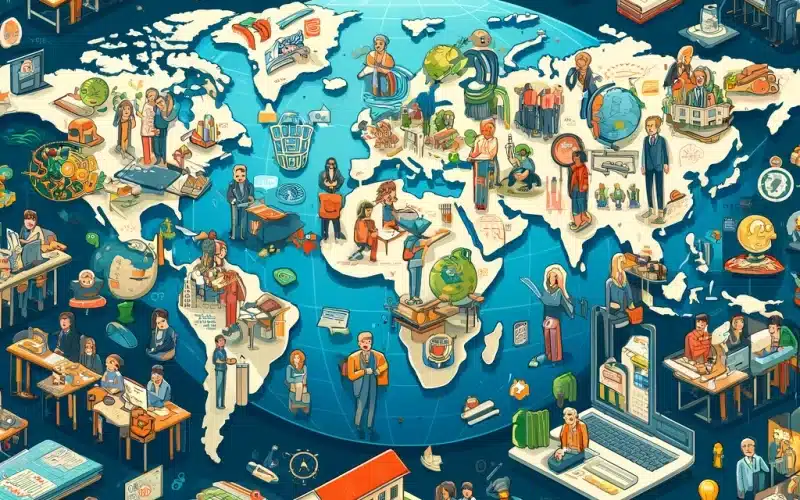
The special issue of the International Review of Education titled “The Sustainable Development Goals and the Global Governance of Education” (August 2024) delves deeply into how the Sustainable Development Goals (SDGs), particularly SDG 4 (Quality Education), act both as products and mechanisms of global governance.
Edited by William C. Smith, Melanie C. M. Ehren, and Sotiria Grek, the issue explores the shifting dynamics in educational governance. While institutions like UNESCO, the World Bank, and the OECD have historically shaped global education discourse, newer trends highlight a multistakeholder approach involving intergovernmental organizations, civil society, and the private sector.
Education Governance
The articles in the issue delve into various facets of education governance:
- Global Orchestration and Gender: One of the standout themes explored is how gender and education interact within the context of global governance, with institutions responding differently to the soft power and voluntary frameworks introduced by the SDGs. This shifts the governance paradigm from hard power, as seen in the Millennium Development Goals, to a more nuanced, multistakeholder approach.
- Voluntary National Reviews (VNRs): VNRs are analyzed as tools of “soft governance” that allow nations to report their progress towards the SDGs while subtly guiding their educational policies towards global norms. The influence of global summits, like the Transforming Education Summit, and mechanisms like the Global Education Cooperation Mechanism (GCM) are critical in this process.
- Regional Adaptation: Another significant focus is how regional bodies, like the African Union, act as translators of the SDGs, adapting global targets to local educational contexts. This helps to contextualize SDG 4 for diverse educational environments, particularly in developing countries.
Sustainable Development Goals Influence Education Governance
The issue is structured around how the Sustainable Development Goals influence education governance in different ways. The first set of articles discusses the role of global organizations in shaping educational priorities and policies, including through mechanisms like global summits and cooperation frameworks. For example, the Transforming Education Summit and the Global Education Cooperation Mechanism are key focal points in understanding global educational orchestration.
Another group of articles emphasizes the soft governance aspects of the SDGs, where voluntary national reviews (VNRs) and regional organizations like the African Union serve as platforms for countries to adapt global goals to local contexts. These approaches, while inclusive, often create challenges around balancing power and influence among diverse stakeholders.
Shift Towards a Flexible, Inclusive Model
In broader terms, this issue underscores the evolution of educational governance from a more rigid framework (Millennium Development Goals) to a flexible, inclusive model under the Sustainable Development Goals. This shift acknowledges the growing complexity and interconnectedness of global education efforts, but also highlights the tensions and power imbalances that come with multistakeholder governance models.
For more detailed analysis, you can access the special issue on platforms such as Springer and UNESCO’s educational resources.
